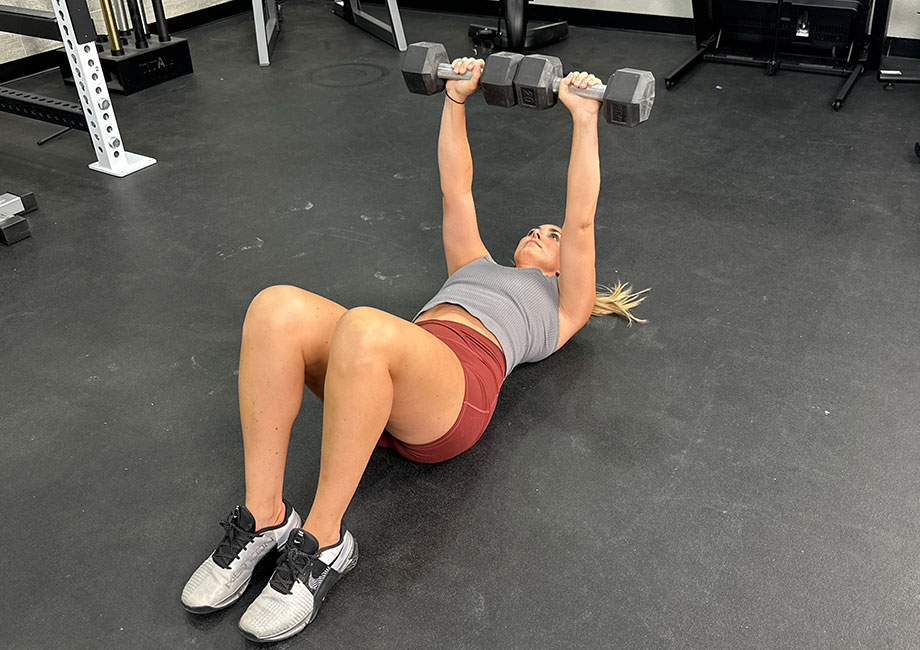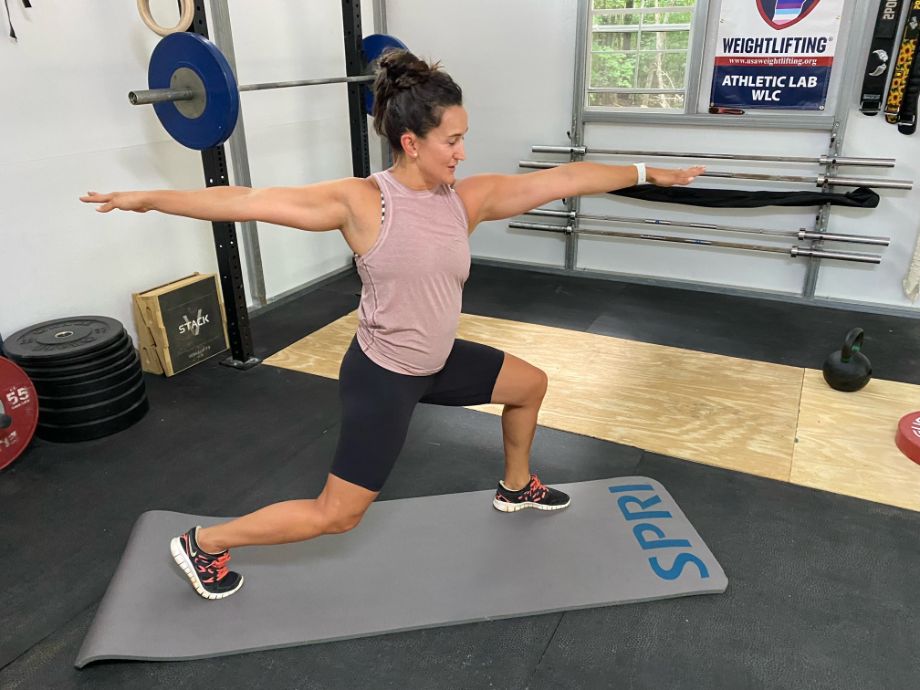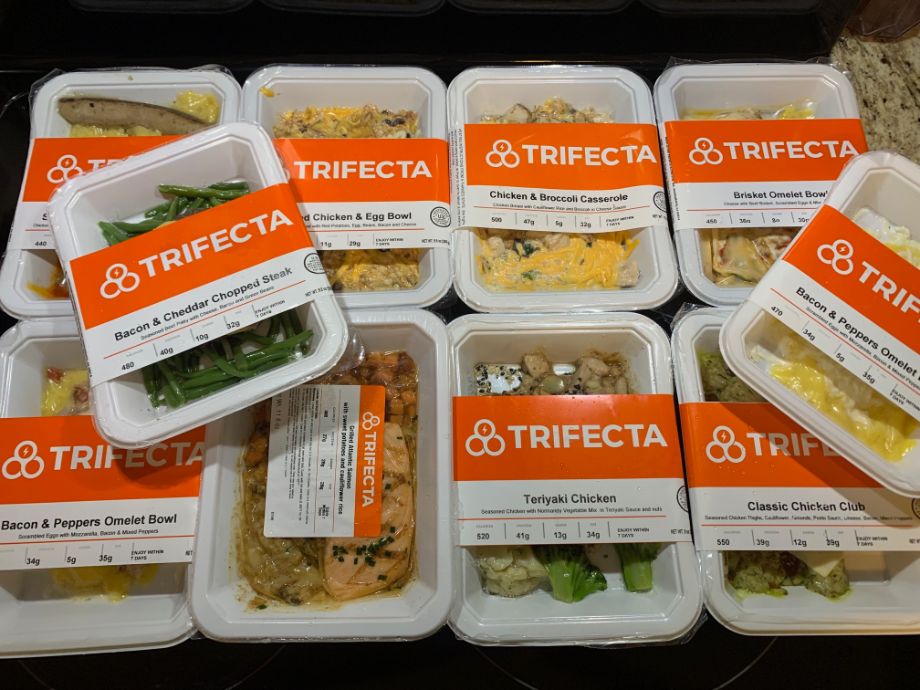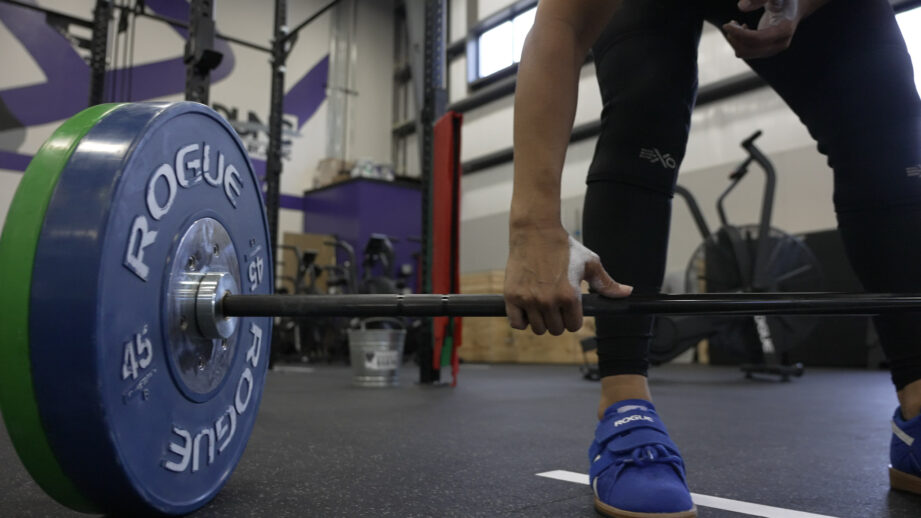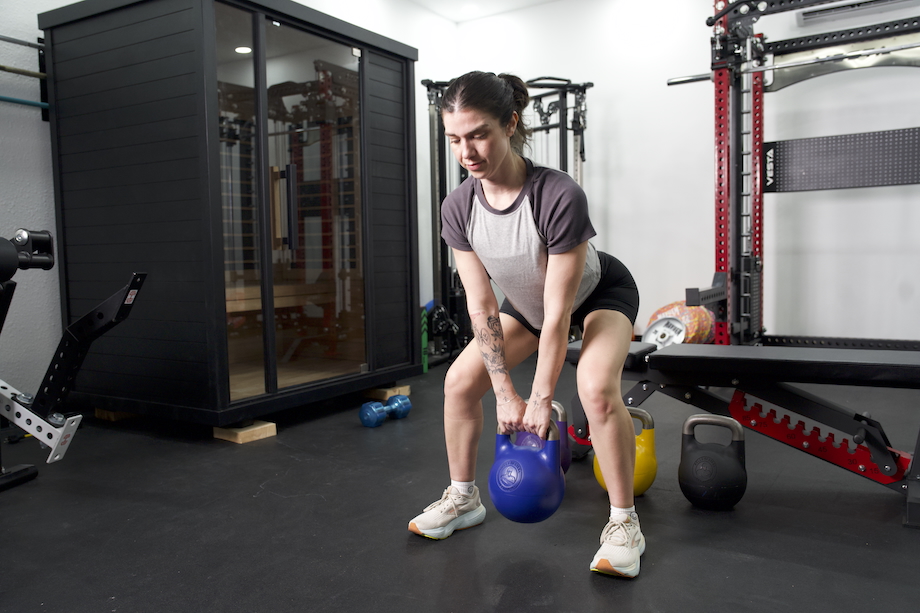The barbell bench press and the overhead press will always be the bodybuilding King of the Jungle regarding pressing strength. Why? Because you will use the most weight, that’s why. But there is a neglected exercise that will improve both while putting less strain on the shoulder joint. Enter the dumbbell floor press exercise.
The floor press has you pressing from the ground, providing more stability and reducing the range of motion. Because there is less leg drive from the lower body, there is more focus on the deltoids, pecs, and triceps to press the weight. This fact helps to improve your pressing strength, so the floor press could be the best press you’re not doing.
RELATED: Chest, Shoulder, Triceps Workouts
Dive in with me—a certified personal trainer (CPT)—as I get into all things floor press exercise for your pressing pleasure.
How To Do the Dumbbell Floor Press
- Lie on the floor face up with one of the best dumbbells on either side.
- Grip a dumbbell in both hands with your feet shoulder-width apart.
- Once you have a firm grip, press up till lockout.
- Lower the dumbbell until your triceps and elbow lightly touch the ground.
- Reset and repeat for desired repetitions.
Note: If you’re having trouble getting in and out of the floor press position, use a spotter to hand you the dumbbells.
RELATED: How to Be A Good Spotter
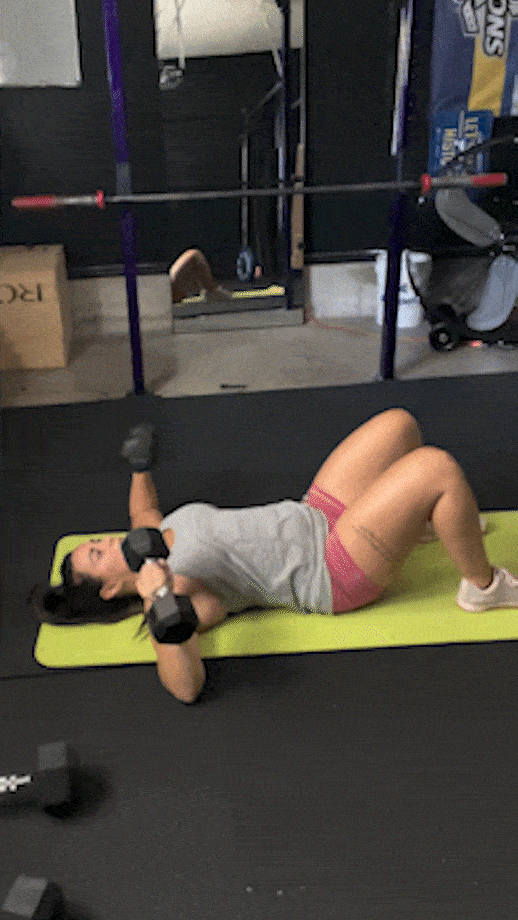
Benefits of the Dumbbell Floor Press
It’s not that the barbell bench press or overhead shoulder press is unsafe, but the floor press with the stability and reduced ROM is a safer pressing exercise for all, especially for beginners. Here are a few more benefits of the dumbbell floor press exercise.
Increases Upper Body Muscle
Due to the lack of involvement of the lower body and the decreased range of motion, the dumbbell floor press is an excellent hypertrophy move for the upper body without adding excessive strain to the shoulders.
Builds Strength
The dumbbell bench press is great, but the partial range of motion (ROM) of the dumbbell floor press is a great exercise to target specific parts of the lift and to emphasize certain pressing muscle groups more. With the floor press, you can lift heavier loads in the top half of the press further to strengthen your triceps, chest, and shoulders. Whether you’re into powerlifting (i.e. deadlifts, squats, and benches) or bodybuilding, the floor press is excellent for both.
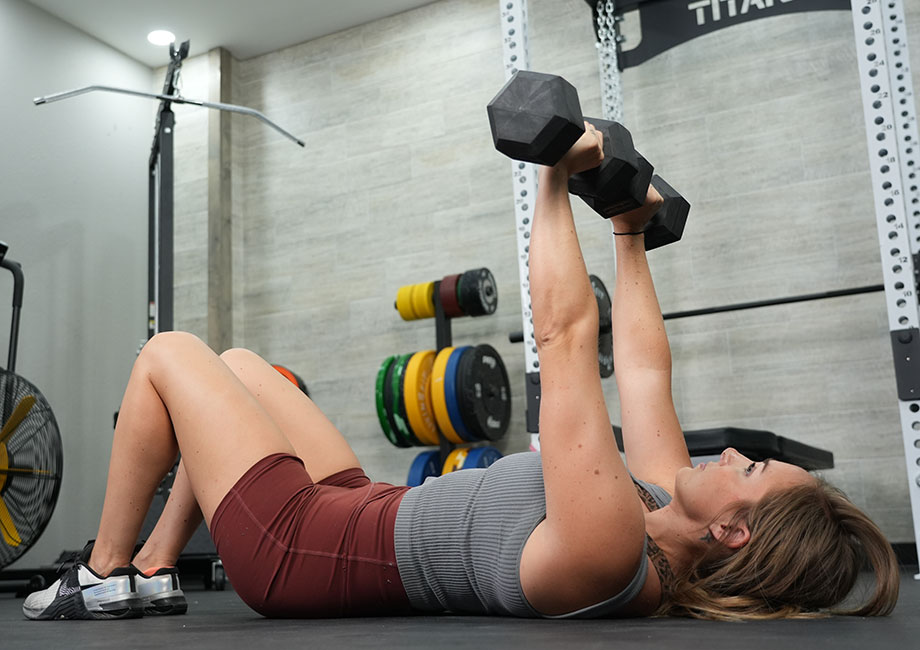
Improves Lockout Strength
Have you ever seen a lifter struggle to finish a bench or overhead press? This is a sticking point called lockout strength, and it’s often a weakness regarding push-ups, benches, and overhead pressing. The reduced ROM and lack of lower body involvement make the dumbbell floor press a fantastic exercise to target this weakness.
RELATED: Arm Workouts with Weights
Creates Less Strain On Your Shoulders
The dumbbell floor press reduces shoulder external rotation, where shoulder joint problems can happen, making it the perfect lift for those with banged-up shoulders. This exercise is excellent for beginner lifters because the reduced ROM reduces shoulder pain and shoulder injuries from larger ROM movements. And it helps build muscles, strength, and control for more difficult lifts like the regular bench press.
RELATED: Best Shoulder Exercises
Trainer Tips for Form
Here are a few certified personal trainer tips to ensure proper form and a safer lift.
Leg Position
You can get yourself set up with your feet on the floor or your legs extended; both are a matter of personal preference. The legs-extended position makes the floor press exercise slightly more difficult.
Touch the Floor
Touching the floor with your elbows and triceps and extending your elbows at lockout ensures that you’ll go through a full range of motion for better muscle-building benefits.
Elbow Position
Don’t have your elbow too close to your side or too far away from your torso. Neither is terrible, but you will not get the full benefits of the floor press exercise. Instead, having your elbow at a 45-degree angle away from your torso is a better pressing position.
Common Floor Press Exercise Mistakes
The dumbbell floor press and even the barbell floor press are easier to perform, but that doesn’t mean mistakes can’t be made. Here are a few common errors with the dumbbell floor press to watch out for.
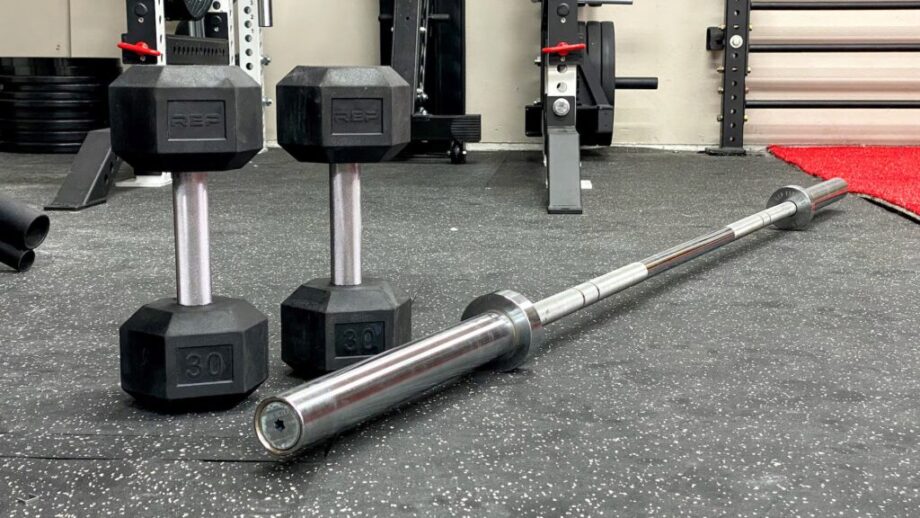
Improper Set-Up And Finish
Exercise control when lifting and lowering the dumbbells to your side before and after the movement. Anything less, and you’re inviting damage to your shoulders or the feet of others around you.
Losing Control
Bouncing your arm off the floor on the eccentric or twisting your upper body on the concentric motions are signs you have lost control. Both put you at higher injury risk and reduce muscle-building tension. Instead, lower the load, and lift with more control.
Reducing the Range Of Motion
The dumbbell floor press exercise is a partial range of motion exercise, and when you don’t touch the ground with your upper arm or achieve lockout, you can kiss some of your hypertrophy gains goodbye.
RELATED: Hypertrophy Workout
Floor Press Chest Exercise Variations
Here are a few floor press variations and alternatives to keep your pressing gains on the up and up.
Note: These variations can be performed with a kettlebell.
Dumbbell Bench Press
Why Do It: The dumbbell bench press gives you more freedom of movement and higher intensity at a lower weight for those juicy muscle-building gains.
How To Do It:
- Adjust the weight bench to your preferred angle, and pick up and grip two dumbbells.
- Curl each dumbbell to your knee and then drive the dumbbells back towards you with your knees.
- Then press the dumbbells up and slowly lower the weights, keeping your elbows at a 45-degree angle.
- Push the weight back up and reset and repeat for desired reps
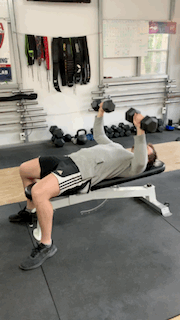
Hip Extension Floor Press
Why Do It: The hip extension floor press takes an upper-body exercise and turns it into a full-body exercise by training the glutes. Plus, the change of pressing angle targets the lower chest, similar to a decline bench press.
How To Do It:
- Face up on the floor, holding a dumbbell in each hand, and curl up to the pressing position.
- Then with a neutral grip and feet flat on the floor, perform a hip extension and squeeze your glutes.
- Place your elbows at a 45-degree angle away from your torso.
- Press up until your elbows are locked out, and slowly return until your upper arms are on the floor.
- Reset and repeat for desired repetitions.
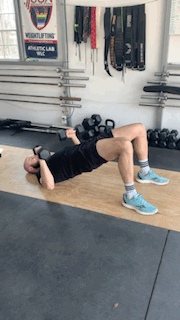
Dead Bug Floor Press
Why do it: Combining the core stability benefits of the dead bug exercise with the strengthening benefits of the floor press can help improve full-body strength and coordination.
How to do it:
- Roll over to your side and grip the dumbbell with both hands
- Roll back and bring your feet off the floor with your knees at a 90-degree angle.
- Press the dumbbell and release your left hand.
- Lower the dumbbell to the floor and press up while extending your right leg.
- Return to the starting position, reset, and repeat for all the reps on one side.
- The repeat on the right hand and left leg.
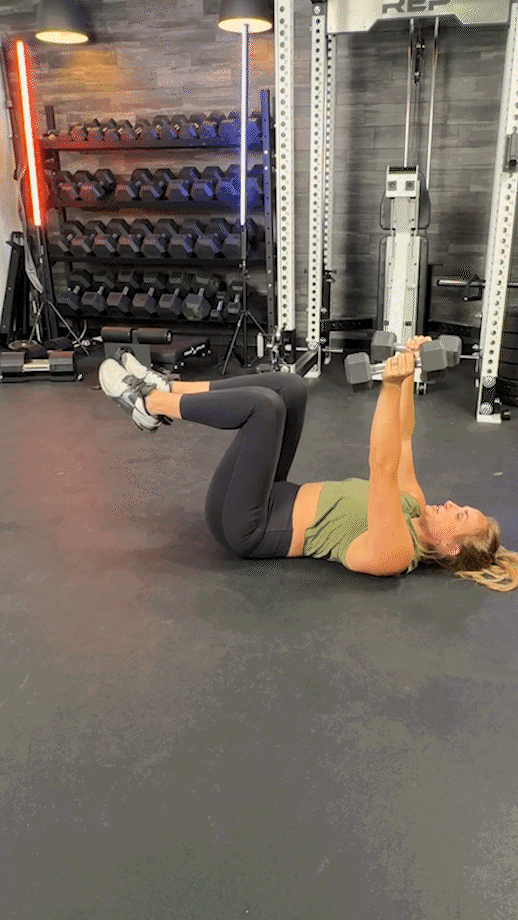
Floor Press Exercise FAQs
What muscles does a floor press work?
The floor press is mostly an upper-body exercise focusing on the chest, triceps, and anterior deltoid muscle groups.
What are the benefits of floor press?
The most significant benefit of the floor press is the stability of being on the floor, and the reduced range of motion for the shoulder makes it a safer and easier lift than the bench and overhead press. The floor press increases muscle and strength for the chest and triceps and improves triceps lockout strength for more complex pressing exercises like the Olympic lifts.
Is a floor press better than a bench press?
When it comes to most exercises, there is no better or worse, only different or better fit for the individual and their goals. If you have sore shoulders or are a pressing beginner, then the floor press is a great place to start. If you don’t have shoulder issues or are looking to increase your pressing strength exponentially, then the barbell bench press is the better choice.


